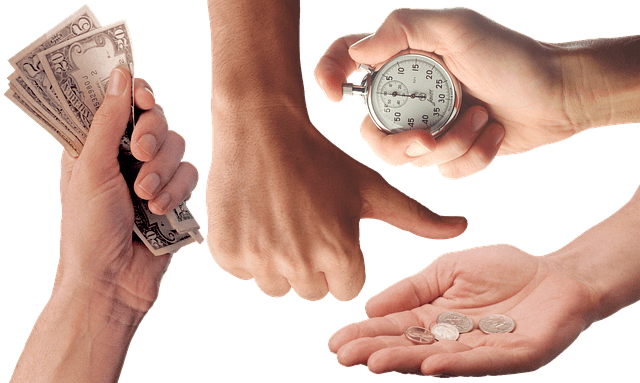How much is a good interest rate for a car? A thorough analysis.

When purchasing a car in the United States, a key factor that determines the total cost is the interest rate on your loan. This rate, essentially the cost of borrowing money, can vary considerably depending on various factors such as your credit score, the loan term, and whether the car is new or used. In this scenario, it is common to wonder: how much is a good interest rate for a car in the USA? In this article, we will delve into this question, breaking down key concepts and exploring how you can ensure you get the best possible rate for your loan. Understanding these variables will help you make an informed decision and optimize your investment, allowing you to enjoy your new vehicle without worrying about excessive costs or unfavorable loan conditions.
What is the interest rate?
It is a fundamental concept in the financial world and especially in any type of loan or credit, such as vehicle loans. In simple terms, it is the price paid for the use of borrowed money over a specified period of time. It is expressed as a percentage of the loan amount or credit, also known as the «principal». In other words, it is the cost of «renting» money.
When you take out a loan, you not only repay the original amount you borrowed, but you also pay a certain percentage of that original amount as interest. This is essentially the fee that the lender, whether it be a bank, a credit union, or any other financial institution, charges for the service of lending money.
In the case of a vehicle loan, the interest rate will determine how much you will pay in addition to the price of the vehicle. Therefore, a lower interest rate generally means a more affordable loan, while a higher interest rate will make the loan more expensive.
The interest rate can be fixed, meaning it does not change during the life of the loan, or variable, meaning it can change based on market conditions or the terms of the loan agreement.
Therefore, when considering a vehicle loan, it is crucial to understand how the interest rate works and how it will affect your payments and the total cost of your vehicle.
Factors that affect the interest rate.
Several factors can affect the interest rate of a vehicle loan. Some of the most significant ones include:
Your credit score.
Your credit score is perhaps the most important factor that determines the interest rate on your vehicle loan. This score reflects your past credit behavior and is used by lenders to assess the risk of lending you money. Generally, the better your credit score, the more reliable you will be considered by lenders, and therefore, you are more likely to be offered a lower interest rate.
Loan duration
The length of your loan can also influence your interest rate. Longer loans often come with higher interest rates. This is because the longer it takes for you to repay a loan, the more risk the lender faces of not recovering their money.
New or used vehicle
Generally, loans for used vehicles have higher interest rates than loans for new vehicles. Used vehicles can be riskier for lenders because their value may depreciate more quickly than that of a new vehicle.
Economic conditions
General economic conditions can also affect interest rates. For example, during a recession, interest rates tend to decrease to stimulate spending and investment. On the other hand, during a period of economic growth, interest rates may rise.
Your income and debt
Lenders may also consider your income and debt-to-income ratio. If you have a high income and a low amount of debt relative to that income, lenders may see you as a low-risk borrower and offer you a lower interest rate.
These are just some of the factors that can affect the interest rate on your vehicle loan. By understanding these factors, you can work towards improving your conditions and obtaining the best possible interest rate.
What is a good interest rate for a car in the USA?
Determining what constitutes a good rate for a car in the United States can depend on various factors. However, to provide you with a general idea, let’s consider the average interest rates in the country and how they may apply to your situation.
In general terms, interests rates for vehicle loans in the United States can vary significantly. Depending on the state of your credit, the loan term, and whether the vehicle is new or used, you can expect interest rates ranging from 3% to 20%.
For a buyer with excellent credit (a credit score of 720 or above), a good interest rate for a new vehicle would be around 3% to 5%. On the other hand, if you’re looking to finance a used vehicle, a good interest rate might be slightly higher, perhaps in the range of 4% to 6%.
However, it’s important to remember that these are general ranges, and the rate you are offered will depend on your individual financial situation and the lender. Those with lower credit scores can expect significantly higher interests rates. Similarly, interest rates may be higher for longer-term loans.
Tips for obtaining good interests rates.

Obtaining a good rate on a vehicle loan can save you thousands of dollars over time. Here are some tips to help you secure the best possible interest rate:
Improve your credit score
The most effective way to obtain a lower interest rate is to improve your credit score. Pay your bills on time, reduce your debt, and avoid unnecessary credit inquiries. If you have errors on your credit report, make sure to correct them.
Compare different offers
Not all financial institutions offer the same rates. Before deciding on a loan, make sure to research and compare offers from different lenders. Credit unions, for example, often provide lower interest rates than traditional banks.
Consider a shorter loan term
If you can afford it, consider opting for a shorter loan term. Although this will result in higher monthly payments, it will also reduce the total amount of interest you will pay over time.
Make a large down payment
The more money you can contribute as a down payment, the less you will need to borrow. This can result in a lower rate as you reduce the risk for the lender.
Negotiate the interests rate
Many people are unaware that they can negotiate the rate on a vehicle loan. Don’t settle for the first offer you receive; instead, do your homework and be prepared to negotiate.
Consider refinancing
If you already have a vehicle loan but your credit score has improved or interest rates have dropped, it may be a good idea to consider refinancing. This involves obtaining a new loan with better terms to pay off the existing loan.
Keep these tips in mind and remember that the goal is to ensure that the vehicle loan fits your financial needs, not the other way around. Make sure to read and fully understand the terms of the loan before signing any contracts.